Exploring the Unique Approaches and Objectives of Talent Acquisition Professionals
In the world of talent acquisition, two prominent terms often surface: headhunters and recruiters. While these roles may seem similar at first glance, they serve distinct functions in the hiring process. In this blog post, we will explore the differences between headhunters and recruiters, shedding light on their unique methodologies and goals. Let's delve into the contrasting aspects of these two essential roles in the talent acquisition landscape.
Defining the Roles:
Both headhunters and recruiters play crucial roles in connecting employers with suitable candidates, yet their approaches and objectives differ significantly.
Headhunters, also known as executive search consultants, specialize in identifying and recruiting top-tier talent for high-level executive positions. They proactively seek out candidates who possess specific skills, experience, and qualifications. On the other hand, recruiters generally focus on filling a broader range of positions across various levels within an organization. They typically collaborate with HR departments and hiring managers to source, screen, and present candidates for open positions.
Methodologies and Approaches:
When it comes to their methodologies, headhunters and recruiters adopt different strategies to find and attract candidates.
Headhunters often engage in targeted search and recruitment processes. They proactively reach out to potential candidates, often targeting individuals who are already employed and may not be actively seeking new opportunities. Headhunters typically rely on their extensive professional networks, industry knowledge, and market insights to identify suitable candidates. Once they've identified potential candidates, headhunters initiate direct contact and engage in personalized conversations to gauge interest and suitability for the position.
In contrast, recruiters primarily rely on job postings, online platforms, and databases to attract candidates. They often receive applications from candidates who actively seek new employment opportunities or come across their job postings. Recruiters then evaluate these applications, conduct initial screenings, and present a shortlist of qualified candidates to employers.
Scope of Engagement:
The scope of engagement for headhunters and recruiters also differs based on their roles and objectives.
Headhunters typically engage with candidates on an individual basis. They work closely with both candidates and clients, often providing personalized guidance and support throughout the hiring process. Their focus is on finding the ideal candidate who meets the specific requirements and cultural fit of the organization.
Recruiters, on the other hand, interact with a larger pool of candidates due to the broader range of positions they handle. They engage with candidates in a more standardized and structured manner, ensuring the efficiency of the hiring process while considering a larger number of applicants.
Compensation Models:
The compensation models for headhunters and recruiters are another aspect that sets them apart.
Headhunters typically charge a retainer fee or a percentage of the candidate's first-year salary. This fee structure reflects the specialized nature of their services and the high-level positions they recruit for. It also aligns with the time and effort invested in identifying and attracting top talent.
Recruiters, on the other hand, are typically paid by the employer. They charge a fee based on a percentage of the candidate's first-year salary, similar to headhunters. However, recruiters may also offer contingency-based services, where they only receive payment if a successful placement is made.
Headhunters and recruiters may share the goal of connecting employers with talented individuals, but their methodologies, objectives, and scopes of engagement set them apart. Headhunters specialize in executive-level positions, employing proactive and targeted search methods, while recruiters cater to a wider range of positions and adopt a more standardized approach. Understanding these distinctions will help both employers and job seekers navigate the talent acquisition landscape effectively, leveraging the expertise of these professionals to secure the right fit for their needs.





